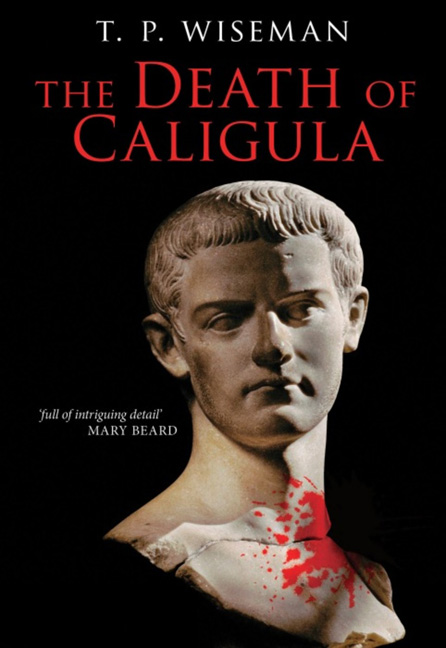Book contents
- Frontmatter
- Content
- Illustrations
- Acknowledgements
- Dedication
- Introduction
- Abbreviations and Select Bibliography
- Flavius Josephus, Antiquitates Iudaicae xix 1–273
- I Preface
- II The Conspiracy
- III The Assassination
- IV Panic on the Palatine
- V The Republic Restored
- VI Obituary
- VII The Claudius Coup
- Note on the Text
- Commentary
- Appendices:
- Index of Names
I - Preface
from Flavius Josephus, Antiquitates Iudaicae xix 1–273
- Frontmatter
- Content
- Illustrations
- Acknowledgements
- Dedication
- Introduction
- Abbreviations and Select Bibliography
- Flavius Josephus, Antiquitates Iudaicae xix 1–273
- I Preface
- II The Conspiracy
- III The Assassination
- IV Panic on the Palatine
- V The Republic Restored
- VI Obituary
- VII The Claudius Coup
- Note on the Text
- Commentary
- Appendices:
- Index of Names
Summary
1 It was not only the Jews in Jerusalem and Judaea who were exposed to Gaius’ outrageous madness. He projected it through every land and sea, and filled Rome's dominions with more evil than
2 history had ever known. But Rome above all felt the horror of his actions. He felt no special respect for the capital, but persecuted the Senate in particular, and those of its number who were of noble birth or
3 honoured for their ancestors’ distinction. Against the ‘knights’, too, his ingenuity was boundless. Their dignity and financial influence made them equal to the senatorial order in the city's regard, since the senators were chosen from their number. They now faced dishonour, exile, death and plundered property—for the removal of their riches was usually his motive for their murder.
4 He was also in the process of making himself a god. The honours he demanded from his subjects were no longer those appropriate to a human being. When he visited the temple of Jupiter, which the Romans call the Capitol and regard as their most venerable temple,
5 he boldly addressed the god as his brother. Equally insane was what he did with the crossing from Dikaiarchia to Misenum (two coastal towns in Campania). Thinking it intolerable to go across by
6 warship, especially since he was lord of the sea, which owed him just as much tribute as the land did, he joined the two promontories together across three miles of water, cut off the whole bay, and drove his chariot across the bridge. That, he said, was the sort of road-building appropriate to a god.
7 He plundered every temple in Greece, giving orders that all their paintings and sculptures, statues and dedications, should be brought to him, since it was right that beautiful objects should only be in the most beautiful place, and that happened to be the city of
8 Rome. With this loot he decorated his house and gardens, and all his villas throughout Italy. He did not even hesitate to order the transfer to Rome of Pheidias’ statue of Olympian Zeus (so called because it is venerated
9 by the Greeks at Olympia), and the only reason he failed to carry it out was that the architects told Memmius Regulus that to move the statue, as he had been ordered, would totally ruin it.
- Type
- Chapter
- Information
- The Death of CaligulaFlavius Josephus, pp. 3 - 4Publisher: Liverpool University PressPrint publication year: 2013



